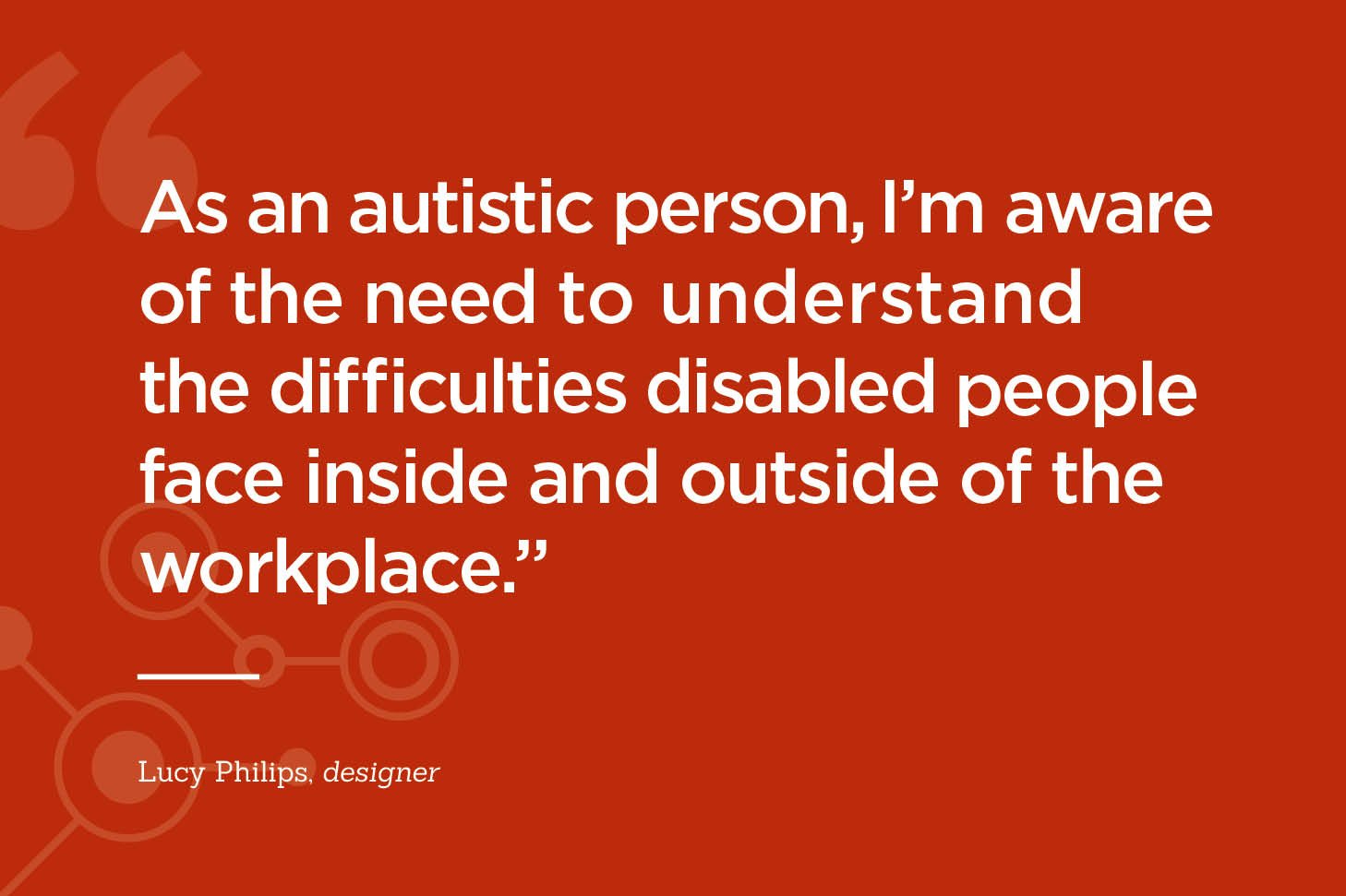Lucy’s guide to the neurodiverse workplace
Published - 28th July 2022

As an autistic person, I’m well aware of the importance of understanding disabilities and the difficulties disabled people face inside and outside of the workplace.
There are around 7.7million people of working age with a disability or long-term health condition in the UK yet only half of those people are in employment. For example, two in 100 adults in the UK are diagnosed as autistic, and for every one female diagnosis there are five males diagnosed. This can often result in women not getting the support they need to live with autism.
Completing my L2 in ‘Understanding Autism’ with Total Training Provision not only helped me to further my own understanding on what being autistic and disabled meant for me, but also how it affects other people.
Autism means a whole host of different things to each individual, but I would like to outline how Harris becoming a disability confident employer has made my year of working here a smoother ride than most autistic/disabled people in the workplace get to experience.
Disability Confident is a scheme designed to create a movement of change that encourages employers to think differently about disability and aims to improve how they recruit, retain and develop disabled people. After speaking with both Kirsty and Neil (our joint MDs) about my disability, I explained to them how it would be useful to become a Disability Confident employer. It would mean they may discover someone the business may otherwise have missed out on, and also provides a safe space for other disabled people within the company to open up about additional support they may need. Businesses are also provided with a handbook on their role with a disabled employee and how to support them, which is useful for further understanding what they can do to help.
Harris was able to provide me with a number of reasonable adjustments to help improve my experience of working in an agency. Like all employees, I am allowed to work from home as and when I need to, which means if I’m feeling particularly overwhelmed one day, I’m able to work in a less sensory stimulus environment. In the office, I have the option of working in a quieter room if I’m feeling sensitive to noise around me, or can work with my headphones on or with lower lighting levels. The team is also aware of the need to communicate clearly with me, without using jargon, so I understand what is required of me, and we have regular meetings to check-in on my workload and to help me prioritise my work.
Some of these adjustments may seem small to others, but make a huge impact on my productivity and how safe I feel in the workplace. Some employers may not understand the importance of providing additional support to their disabled employees so perhaps don’t provide reasonable adjustments – however these adjustments tackle these unseen and often misunderstood issues and make a big difference to neurodivergent people like me.
I encourage businesses to look into applying for the Disability Confident employer scheme and taking the first step into helping to break the stigma around disabled people.
Learn more about the scheme here.
Harris »